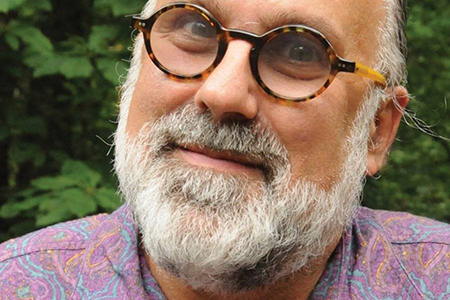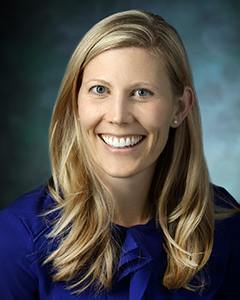Overview
Now in its 13th year, the Institute for Basic Biomedical Sciences gathers science reporters for an annual, daylong event focused on a single research topic. Journalists enjoy firsthand access to Johns Hopkins University School of Medicine researchers and physicians, getting the opportunity to learn about the latest advancements in health, medicine and science. Past events focused on topics ranging from sensory biology to epigenetics to pain and tissue regeneration and the brain to metabolism research and the immune system and immunology. Nearly 100 journalists and science writers from all regions in the U.S. and Canada have attended this exclusive event.
Who Can Attend
The Science Writers' Boot Camp is open to science communicators of all types including writers, journalists, bloggers and public information officers. To join our email list for information about our events, please contact us at writersbootcamp@jhmi.edu.
Speakers
-
James Berger, Ph.D.

Director, Institute for Basic Biomedical Sciences
9 - 9:15 AM
Introduction
-
David Linden, Ph.D.

Professor of Neuroscience
9:15 - 9:30 AM
The Scientific Case Against Racism
In his new book, Unique: The New Science of Human Individuality, neuroscience expert David Linden explores the science behind the random combination of heredity, development and lived experience that makes us individuals. Using this rationale, Linden makes the case that the historic “scientific” bases for racism are inherently false.
-
Vikram Chib, Ph.D.

Assistant Professor of Biomedical Engineering
9:30 - 9:45 AM
Understanding the Individuality of Fatigue - Watch
When you are exhausted, already challenging tasks can tend to feel insurmountable. Vikram Chib will share his findings on how the brain processes fatigue, and will explain why, when completing the same task, some individuals may feel an enormous effort is required while others have no problem persisting.
-
Dionna Williams, Ph.D.

Assistant Professor of Molecular and Comparative Pathobiology
9:45 - 10 AM
But First You Must Cross the Blood-Brain Barrier: Anti-retroviral Therapy Access to the Brain - Watch
Upon infection, HIV swiftly enters the central nervous system, crossing the blood-brain barrier where it causes severe neurological impairment. However, the anti-retroviral therapies that fight HIV can’t cross this barrier, leaving the brain defenseless. Certain populations of people with HIV are at increased risk of neurologic impairment, like those that use illicit substances. Neuropharmacologist Dionna Williams examines the impact of cocaine on HIV-associated neurologic disorders and the differences in disease progression among various demographics.
-
Joel Blankson, Ph.D.

Professor of Medicine and Molecular and Comparative Pathobiology
10 - 10:15 AM
The “elite controllers” who can naturally suppress HIV - Watch
Infectious disease expert Joel Blankson explores the natural mechanism of control of HIV in a cohort of patients known as elite controllers or elite suppressors. These patients are HIV-positive but maintain levels of circulating virus that are below the limit of detection of standard clinical assays. Blankson and his team argue that elite suppressors represent a potential model for a therapeutic HIV vaccine.
-
Alison Hill, Ph.D., M.P.H.

Assistant Professor of Biomedical Engineering
10:15 - 10:30 AM
The Human Touch in Infectious Disease Models - Watch
Models are key tools used to predict the spread of infectious diseases and design optimal treatment or control strategies. In addition to simulating importantbiological, clinical and epidemiological features of an infection, models also must often consider human behavior and health disparities, which are key determinants of infection risk. Alison Hill will discuss approaches researchers take to incorporate these ideas into their modeling tools. She will discuss example models from her own group, addressing how adherence to medication impacts the risk of HIV treatment resistance, how the structure of human contact networks influences epidemic spread, and the role of housing policy in controlling infections like bed bugs and COVID-19.
Panelists
Panel Discussion: The Ripple Effect: How Diversity in Science Improves Outcomes for All-
Cheri Wilson, M.A., M.H.S., C.P.H.Q.

Education and Training Manager, Office of Diversity, Inclusion and Health Equity
-
Doug Robinson, Ph.D.

Professor of Cell Biology
Founder, Summer Academic Research Experience
Johns Hopkins University -
Dionna Williams, Ph.D.

Assistant Professor of Molecular and Comparative Pathobiology
Stay Connected
For more information, email us at writersbootcamp@jhmi.edu
Follow us @HopkinsMedNews
#JHMBootCamp











